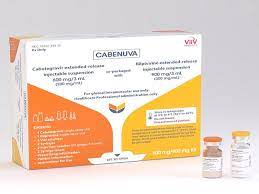Pfizer, Inc. (NYSE: PFE), a stalwart in the healthcare sector, continues to draw investor attention with its notable market presence and a tantalizing potential upside of 17.5%. The company’s current stock price hovers at $24.43, having fluctuated within a 52-week range of $21.59 to $27.37. Despite recent challenges, Pfizer’s strong dividend yield of 7.04% remains a compelling feature for income-focused investors.
Pfizer’s market capitalization stands at a substantial $138.9 billion, underscoring its significant footprint in the drug manufacturing industry. The company’s diverse portfolio spans various therapeutic areas, including cardiovascular, infectious diseases, and oncology, with well-known brands like Eliquis, Comirnaty, and Ibrance leading the charge.
From a valuation perspective, Pfizer presents an intriguing case. While the trailing P/E ratio is unavailable, the forward P/E of 7.77 suggests potential undervaluation, especially when juxtaposed with the broader market. This metric, combined with the company’s diverse product pipeline and strategic collaborations, positions Pfizer as a potentially attractive proposition for value investors.
However, Pfizer’s performance metrics tell a more nuanced story. The company has experienced a revenue contraction of 5.90%, which may concern growth-oriented investors. Nevertheless, Pfizer’s ability to generate robust free cash flows, approximately $14.3 billion, signals strong operational efficiency and provides a cushion for its ambitious R&D endeavors and shareholder returns.
The dividend payout ratio of 99.42% warrants attention, as it indicates that nearly all earnings are being returned to shareholders. This high payout ratio reflects Pfizer’s commitment to delivering shareholder value, though it also suggests limited room for dividend growth without corresponding earnings increases.
Analyst sentiment towards Pfizer is mixed, with eight buy ratings, 14 hold ratings, and a single sell rating. The average target price of $28.70 implies a notable potential upside from current levels. This sentiment is further supported by technical indicators; the stock’s relative strength index (RSI) of 46.13 hints at a neutral stance, while the MACD and signal line align at -0.10, suggesting a stable, albeit cautious, outlook.
Pfizer’s strategic alliances, such as those with Bristol-Myers Squibb and BioNTech SE, enhance its innovation capabilities and market reach. These collaborations are pivotal in addressing unmet medical needs and expanding Pfizer’s product offerings, particularly in high-demand areas like mRNA vaccines and antiviral treatments.
For investors seeking a blend of income and potential capital appreciation, Pfizer offers a compelling case. The robust dividend yield, combined with a possible price appreciation, positions Pfizer as a balanced choice for those looking to mitigate risk while capitalizing on the healthcare sector’s long-term growth prospects.
As Pfizer navigates the post-pandemic landscape, its resilience and strategic initiatives will be crucial in sustaining its market leadership and delivering value to shareholders. Investors should weigh the company’s strong dividend appeal against its recent revenue challenges, keeping an eye on upcoming developments in its product pipeline and market conditions.







































